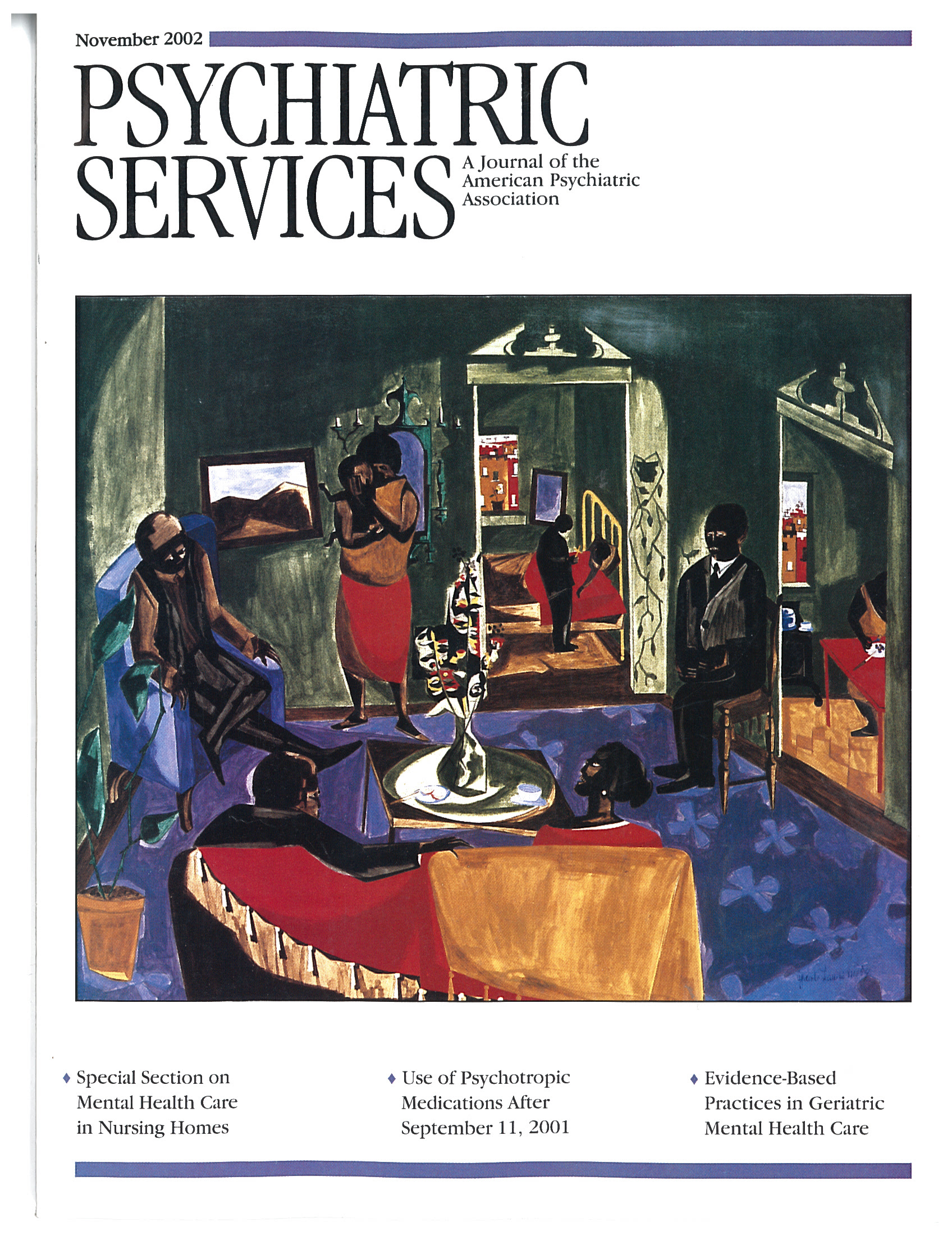Mental Health Services in Nursing Homes
In this month's issue, a special section edited by Marion Z. Goldstein, M.D., focuses on improving the quality of mental health services provided in nursing homes. In the first of five articles, a literature review by Stephen J. Bartels, M.D., and his colleagues concludes that the majority of effective interventions blend psychiatric consultation with training and education of nurses and primary care physicians (see page 1390). Next, Cameron J. Camp, Ph.D., and his coauthors describe nonpharmacologic interventions for a variety of behavioral problems of nursing home residents with dementia (see page 1397). In the third article, Marisue Cody, Ph.D., R.N., and her colleagues discuss barriers to the use of nonpharmacologic approaches that are inherent in this treatment setting and that are imposed by outside entities and forces (see page 1402). Next, J. Michael Ryan, M.D., and his coauthors review studies of psychotropic drugs commonly used in nursing homes and outline critical areas for research (see page 1407). Finally, Joel E. Streim, M.D., and his associates discuss regulatory oversight, payment policies, and quality improvement in the provision of mental health services in nursing homes (see page 1414).
Evidence-Based Practices in Geriatric Mental Health Care
Treatment of mental disorders among older Americans has become a major public health need. In this issue of the journal, Stephen J. Bartels, M.D., and his colleagues provide an overview of empirically validated treatments for common disorders of late life—depression, dementia, substance abuse, schizophrenia, and anxiety—as reflected in evidence-based reviews, meta-analyses, and expert consensus statements. The authors found the most extensive research support for the effectiveness of pharmacologic and psychosocial interventions for geriatric major depression and for dementia. Empirical support was also found for the effectiveness of community-based, multidisciplinary teams. The authors summarize findings of current research on changing the practices of providers and the organization of practice settings to ensure more widespread implementation of evidence-based practices (see page 1419). The article is part of a comprehensive series on evidence-based practices in mental health care introduced in the journal in 2001 and edited by Robert E. Drake, M.D., Ph.D., and Howard H. Goldman, M.D., Ph.D.
Use of Psychotropic Drugs After September 11, 2001
In the Psychopharmacology column, Loren McCarter, Ph.D., and William Goldman, M.D., report the results of a study in which they examined administrative data from a large managed behavioral health organization for two employer groups that were directly involved in the events of September 11 and that reported substantial losses. Using data for two years before the attacks and five months after, they compared the forecasted and actual use of antidepressants, antianxiety drugs, and any psychotropic medication. Only the use of antianxiety drugs was significantly different from the forecasted level, and that difference was noted particularly in October 2001 and to a lesser degree in December. More than 85 percent of the antianxiety drugs were prescribed by nonpsychiatrists (see page 1366).
Overlooking Alcohol Use Among Criminal Offenders
Drug offenders now account for about a third of the U.S. state prison population, a shift that has been driven largely by substantial evidence of a connection between illicit drug use and crime. In the Alcohol & Drug Abuse column, David Farabee, Ph.D., and his colleagues review the extensive evidence for the central role of alcohol in violence and crime, pointing out that the number of convicted offenders who were under the influence of alcohol at the time of their offense is nearly twice that of those under the influence of drugs. Despite this evidence, alcohol receives little specific attention in corrections-based substance abuse programs, where the focus is on illicit drugs. According to the authors, alcohol use hampers recovery from other substance abuse and plays a substantial role in relapse and reincarceration. The authors recommend strategies for improving the outcomes of substance-abusing offenders with alcohol problems (see page 1375).
Briefly Noted…
A study of outcomes of nearly 38,000 inpatients treated in Veterans Affairs medical centers suggests that receipt of outpatient care before admission may be a useful measure of the performance of mental health systems and one that can be readily obtained from administrative data (see page 1451).
A study that compared standard case management and intensive case management found that patients in the intensive case management group had a better overall perception of their care, but no between-group differences were found in patients' perceptions of the quality of care (see page 1432).

